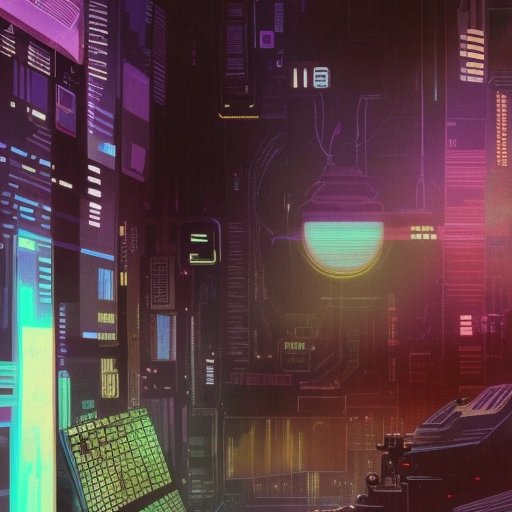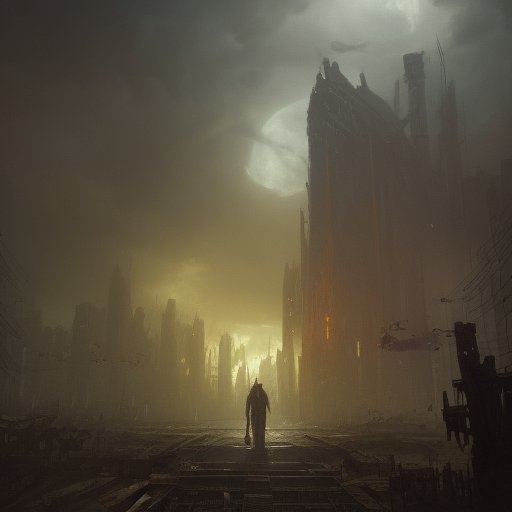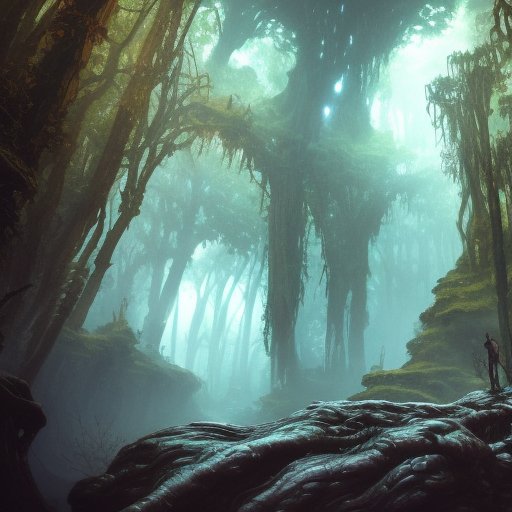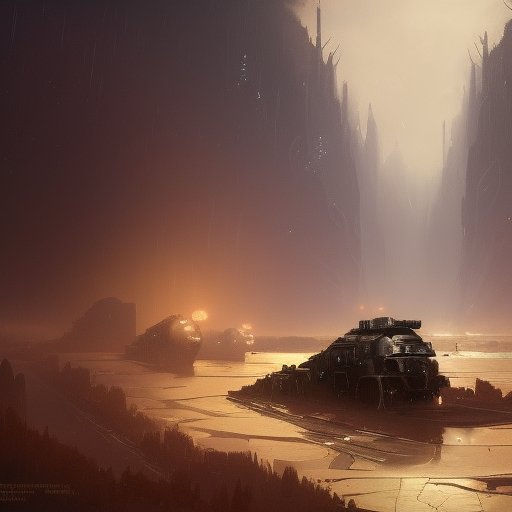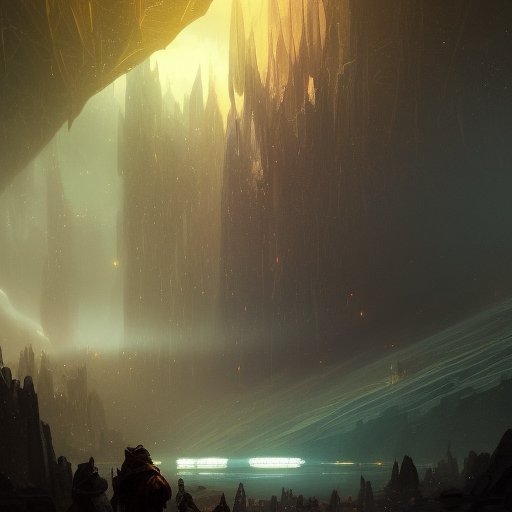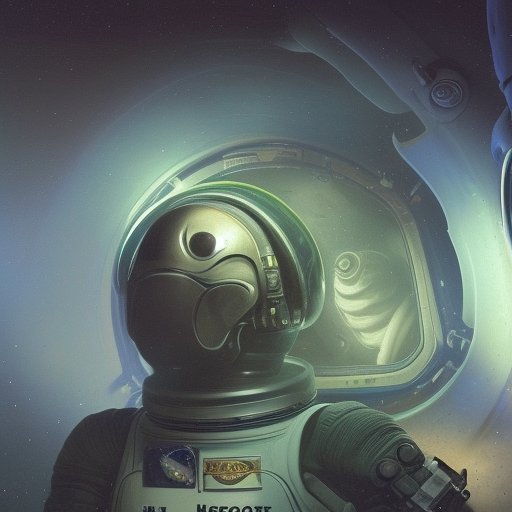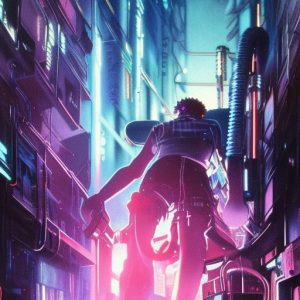
Get ready to jack in and blast off, because we’re diving deep into the world of 80s hacker culture and its impact on science fiction. In this article, we explore the hypothetical realm of an ultimate 80s hacker anime, rife with mind-bending tech and thrilling action. Drawing inspiration from classic sci-fi like Dune and Ender’s Game, we explore how these works laid the groundwork for the cyberpunk aesthetic that defines the genre. But we don’t stop there – we examine how the genre evolved beyond the 80s and into the present day, dissecting its ongoing relevance and cultural impact. The legacy of the 80s hacker is alive and well in science fiction today, and we’re here to map its course.
I. Introduction
In the 80s, hacking wasn’t just about breaking into computer systems; it was about pushing boundaries and sticking it to the man. It was a counterculture movement, born out of a desire to explore the digital frontier and see where technology could take us.
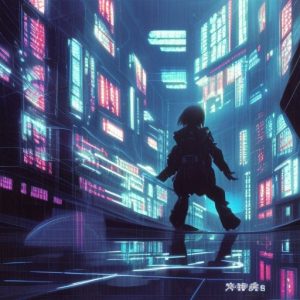
This mindset had a profound impact on science fiction, which was itself undergoing a renaissance at the time. Writers like William Gibson were introducing cyberpunk to the world, a new subgenre that blended the slick aesthetics of noir with the slicker hardware of the information age.
The result was a vision of the future that was both glamorous and gritty, a place where the coolest tech was just as likely to lead to your downfall as it was to save your life. It was a world where anything was possible, but nothing was guaranteed.
This tension between possibility and risk was central to the hacker ethos of the 80s, and it’s why the two cultures were such a natural fit. Both hackers and science fiction writers were exploring the limits of what was possible, and both were unafraid to break a few rules along the way.
This spirit of adventure and daring has lived on in science fiction, influencing everything from Ender’s Game to The Matrix. And while the world of hacking has evolved over the years, the legacy of the 80s remains a vital part of our cultural imagination.
So buckle up, dear reader, and get ready for a journey through the world of 80s hacking and science fiction. We’ll explore the impact that this culture has had on our imaginations, and see how it continues to shape the stories we tell about the future.
II. The Ultimate 80s Hacker Anime
Picture this: a team of motley hackers, each with their unique set of skills, embarks on a mission to take down the oppressive conglomerate that controls their world. This is the premise of the Ultimate 80s Hacker Anime, a series that blends the high energy action of classic anime with the anarchic spirit of the hacker subculture.
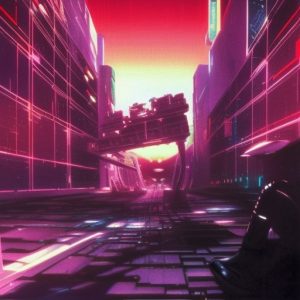
Our hero is Max, a skilled programmer with a chip on his shoulder and a rebellious streak a mile wide. He’s joined on his mission by a cast of characters that includes the grizzled veteran known as The Professor, the free-spirited graffiti artist known as Spray, and the tech-savvy whiz kid known only as The Kid.
Together, they must navigate a world ruled by the insidious megacorp known as The Corporation, using their skills and wits to evade its numerous traps and obstacles. Along the way, they’ll encounter a host of characters, both friend and foe, and battle against all manner of high-tech threats.
But this isn’t just a story about hacking and action. It’s also a deeply political tale about the dangers of corporate greed and the importance of individual autonomy. Themes of rebellion, identity, and choice run throughout the series, as our heroes are forced to confront the consequences of their actions and consider the kind of world they want to live in.
And at the heart of it all is Max, whose struggle to find his place in the world and stand up to authority is the emotional core of the series. His journey is one of self-discovery and growth, as he comes to understand the true power of his skills and the importance of standing up for what he believes in.
III. The Influence of Classic Sci-Fi
Classic sci-fi has played a big part in shaping our imaginations. Works like Dune, Ender’s Game, Red Mars, and A Fire Upon the Deep have left a lasting mark on the genre, even as it continues to evolve and embrace new ideas.
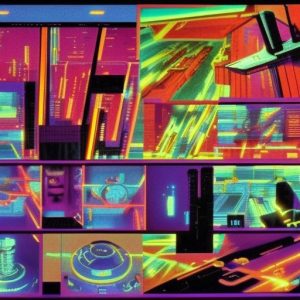
In the case of the Ultimate 80s Hacker Anime, it’s not hard to see how some of the themes and motifs of these classic works could have informed its creation. Dune, for example, presents a vision of a far-future empire dominated by rival factions and shadowy conspiracies. This kind of political intrigue and power struggle could easily find a home in a story about hackers trying to change the world one system at a time.
Similarly, Ender’s Game could provide inspiration for the character of a hacker prodigy with a natural talent for hacking and an innate understanding of complex digital systems. Another potential influence is Red Mars, which explores the complicated social and environmental impacts of colonizing other planets. This story could be a source for the conflicts and challenges that the hackers face as they push the boundaries of what’s possible on the digital frontier.
Finally, A Fire Upon the Deep offers a vision of a universe governed by powerful and mysterious forces, including ancient artifacts and godlike beings. This kind of cosmic scale and grandeur could easily translate into a story about hackers discovering secret codes and hidden networks that could unlock the secrets of the universe.
IV. The Future of Cyberpunk
As we move further into the 21st century, the aesthetic of cyberpunk has only grown more alluring. Today’s technology has caught up with–and exceeded–the visions of authors like Gibson, creating a world that is both more real and more surreal than the one they imagined.
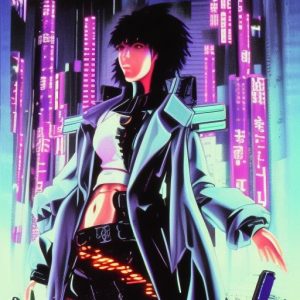
We see it in the sleek lines of new cars, the neon-lit cities that never sleep, and the echo of artificial intelligence that beats within our digital hearts. But even as we bask in the techno-glow of the present, we cannot forget the dark side of cyberpunk that has always been lurking just beneath the surface.
For every advance we make, there is a risk of it being misused, weaponized against us by shadowy entities both governmental and corporate. And as we continue to integrate technology into our lives–from smart homes to implanted devices–these risks only grow.
Nevertheless, the themes that cyberpunk has always explored–the power of technology, the limits of the human spirit, and the tension between control and freedom–remain as relevant as ever. In fact, they may be more relevant than ever, as we struggle to navigate a world that is increasingly controlled by data and algorithms.
Will we push back against these forces and carve out a path for ourselves, or will we be overcome by the tide of progress? This is the question that cyberpunk poses, and it’s one that we must answer if we are to survive and thrive in the years to come.
So, as we look to the future of cyberpunk, let us remember the lessons of the past. Let us use the stories we tell to imagine the world we want, and to fight for it with all the creativity and determination of the hackers who came before us. For if we don’t, we may find ourselves living in a world that was never meant for us.
V. The Legacy of the 80s Hacker
The legacy of the 80s hacker is undeniable. It’s a culture that transformed not only the world of computers but also the world of sci-fi and pop culture. The spirit of the hacker – of daring to explore and push the limits of what is possible – is now woven deep into our cultural fabric.
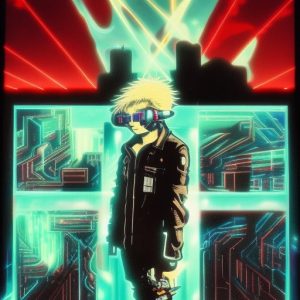
Take a look at the movies, TV shows, and books that we enjoy today, and you’ll see that the influence of the hackers of the 80s is everywhere. From The Terminator to Tron, from Neuromancer to War Games, these works were all deeply influenced by the hacker subculture of the time.
But it’s not just science fiction where we see the impact of the 80s hacker culture. It’s everywhere. From the rise of Silicon Valley to the democratization of knowledge on the internet, the hacker ethos of the 80s has helped shape our world as we know it.
It’s a legacy that is still alive today, as we continue to explore the possibilities and limits of our technology. The way that we think about computers and the internet, the way that we imagine the future, and the way that we see ourselves in relation to technology – all of these things are shaped by the spirit of the hacker.
And as we move into the future, this legacy will continue to be a driving force in science fiction and pop culture. We will continue to push the boundaries of what is possible, to explore the unknown, and to take risks that others would balk at.
So let us celebrate the legacy of the 80s hacker. Let us remember the trailblazers who dared to imagine a different kind of future – one where we could be more than just passive consumers of technology, but active participants in its creation.
And let us look forward to the future with the same spirit of adventure and daring. Who knows what we might discover if we’re willing to take a few risks?
VI. Conclusion
So there you have it, fellow travelers of the digital frontier! We’ve taken a deep dive into the world of 80s hacking and science fiction, exploring the ways in which these two cultures collided and influenced each other.
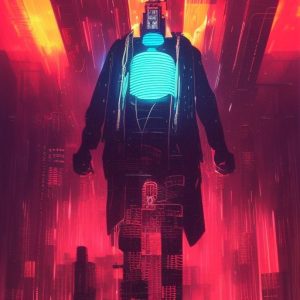
We’ve seen how the hacker ethos of daring and boundary-breaking gave rise to a new kind of science fiction, one that embraced the excitement and uncertainty of the digital age. And we’ve looked at some of the key works and ideas that defined this era, from Dune to Ender’s Game to the cyberpunk subgenre as a whole.
But our journey is far from over, my friends. If anything, we’re just getting started. The legacy of 80s hacking remains a vital part of our cultural consciousness, and it continues to shape the way we think about technology and the future.
So I implore you, dear reader: don’t let this be the end of your exploration. There are countless books, movies, and games that owe their existence to the hacker culture of the 80s, and each one offers a chance to experience that same sense of daring and possibility.
Whether you’re a seasoned science fiction fan or just someone with an interest in the past, there’s something out there for you. So embrace the spirit of adventure that defined the 80s, and plunge headfirst into the world of 80s hacking and science fiction.
